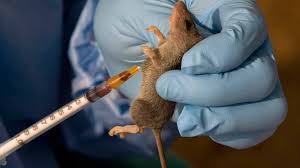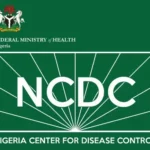Lassa Fever Resurges in Nigeria.

Abuja, Nigeria – Lassa fever, one of Nigeria’s most persistent public health challenges, continues to grip the nation with new waves of infections, prompting urgent interventions from the government and international health agencies. The deadly viral disease, endemic to West Africa, has recorded fresh outbreaks in multiple Nigerian states, leaving healthcare providers stretched and communities fearful.
According to the Nigeria Centre for Disease Control and Prevention (NCDC), over 1,200 suspected cases and more than 200 confirmed infections have been reported across 28 states since January 2025. Sadly, the disease has also claimed dozens of lives, particularly in the country’s rural and underserved communities.
What is Lassa Fever?
Lassa fever is an acute viral hemorrhagic illness transmitted to humans primarily through contact with food or household items contaminated by rodent urine or feces. It can also spread from person to person through direct contact with bodily fluids. With symptoms such as fever, headache, sore throat, chest pain, and in severe cases, bleeding, the illness often mimics malaria and typhoid fever, leading to late diagnosis and treatment.
The World Health Organization (WHO) estimates that 100,000 to 300,000 cases of Lassa fever occur annually in West Africa, with Nigeria carrying the heaviest burden. Case fatality rates in severe cases can reach up to 20%, underscoring the need for urgent attention.
Rising Infections Across Nigerian States
The latest outbreak has been reported in states including Ondo, Edo, Ebonyi, Taraba, Bauchi, and Nasarawa, with Ondo and Edo contributing nearly 60% of the confirmed cases. Hospitals in these states have been overwhelmed, and many healthcare workers are at risk due to inadequate protective gear.
Dr. Jide Idris, Director General of the NCDC, warned:
“Lassa fever continues to be a recurring health threat in Nigeria. Early detection, prompt treatment, and strong community awareness remain key to reducing mortality and breaking the chain of transmission.”
Government and Partner Interventions
In response, the Federal Ministry of Health has activated emergency operations centers in the most affected regions. Health authorities are working with WHO, UNICEF, and the Doctors Without Borders (MSF) to provide surveillance, laboratory testing, case management, and community sensitization.
The government is also intensifying efforts to train healthcare workers, improve supply chains for essential medicines like Ribavirin (used to treat Lassa fever), and strengthen diagnostic laboratories nationwide.
Public Health Challenges
Despite these interventions, several challenges persist:
-
Late presentation of patients due to low awareness and misdiagnosis.
-
Poor hygiene practices and rodent infestations in rural households.
-
Inadequate health infrastructure and shortage of trained personnel.
-
Limited funding for sustained research and vaccine development.
These challenges underline why Lassa fever remains a recurring epidemic despite decades of response efforts.
Preventive Measures for Communities
Health experts stress that prevention remains the most effective strategy. Communities are urged to:
-
Store food in tightly sealed containers to avoid rodent contamination.
-
Maintain clean environments and properly dispose of waste.
-
Avoid bush burning and practices that drive rodents into homes.
-
Report suspected cases immediately to health facilities for testing and treatment.
The Bigger Picture: Nigeria’s Health Security
Lassa fever is more than just a seasonal outbreak; it exposes deeper weaknesses in Nigeria’s public health system. The repeated recurrence highlights the urgent need for investment in healthcare infrastructure, stronger surveillance systems, and increased funding for research into vaccines and long-term solutions.
Recently, the Coalition for Epidemic Preparedness Innovations (CEPI) partnered with global health researchers to accelerate the development of a Lassa fever vaccine. If successful, Nigeria could become one of the first beneficiaries, significantly reducing the annual toll of the disease.
Looking Ahead
As Nigeria continues to battle Lassa fever, the fight requires a multi-stakeholder approach involving government agencies, international partners, community leaders, and individuals. Experts warn that without sustained investment and awareness campaigns, the country risks facing even deadlier outbreaks in the coming years.
Lassa fever may be endemic, but it does not have to be a death sentence. With early treatment, proper prevention, and strong health system resilience, Nigeria can gradually turn the tide against this recurring menace.


